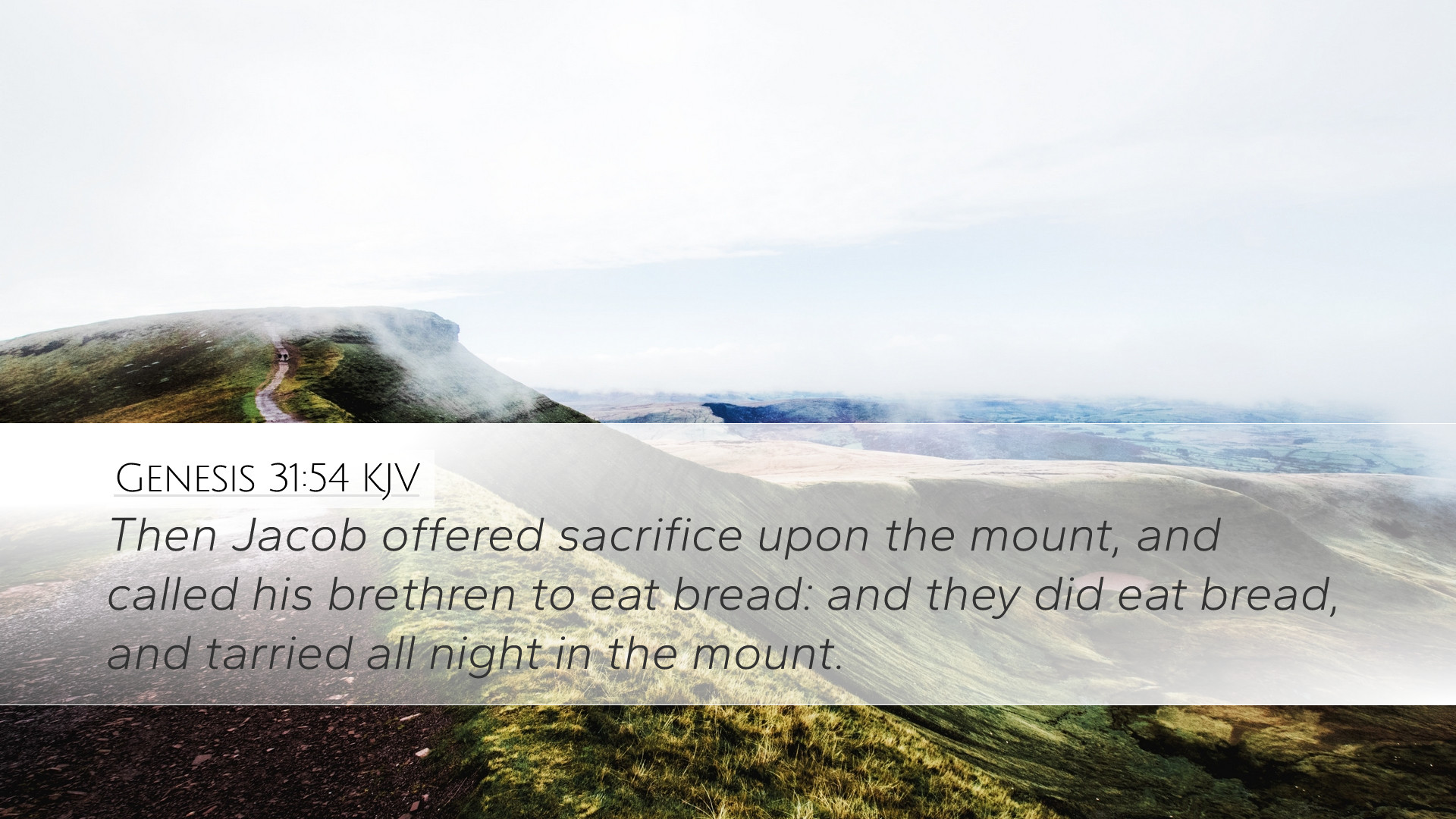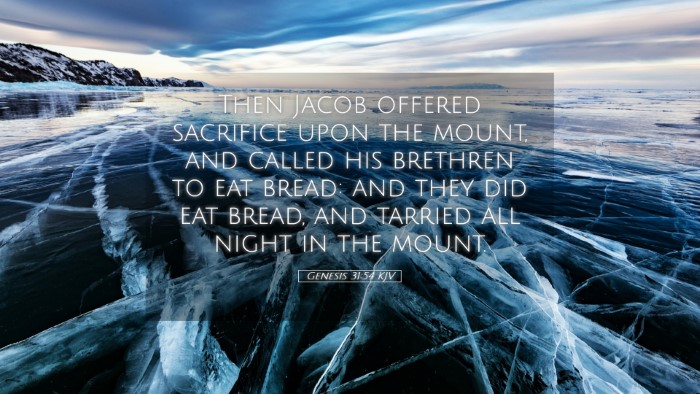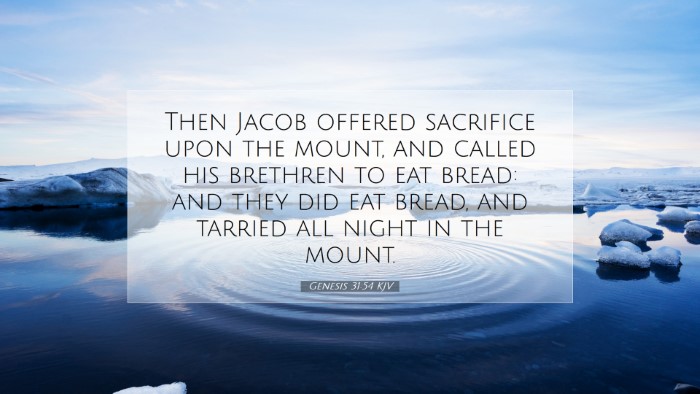Commentary on Genesis 31:54
Verse Context: In Genesis 31:54, we encounter a significant moment in the narrative of Jacob's departure from Laban. Here, Jacob offers a sacrifice on the mountain, thus marking an important spiritual act as well as sealing a covenant between him and his uncle, Laban. This verse not only showcases the cultural practices of hospitality but also emphasizes the seriousness of the agreement made between the two men.
Historical Background
The backdrop of this verse is the complicated relationship that Jacob had with Laban. After years of service, Jacob felt compelled to leave with his family. Laban's pursuit to reclaim his daughters and property led to a tense confrontation, resulting in the necessity of a covenant to ensure peace between the two parties.
Insights from Matthew Henry
Matthew Henry emphasizes the importance of the sacrifices offered by Jacob, interpreting them as both an act of worship and a means of seeking divine favor. In his commentary, he reflects on Jacob's awareness of God’s previous promises and his need for divine assurance as he navigates this transition.
- Spiritual Significance: Henry points out that Jacob’s sacrifices signify dedication and a serious intention to honor his commitments.
- Symbol of Peace: The meal that follows represents the sealing of their agreement and the desire for peaceful relations moving forward.
Insights from Albert Barnes
Albert Barnes provides a thorough exposition on the covenant ritual taking place in this verse. He notes how the act of eating bread together signifies fellowship and mutual respect, reinforcing the bond despite past grievances.
- Contextual Importance: Barnes highlights that such rituals were customary in the ancient Near Eastern culture as proof of goodwill.
- Tension and Resolution: He further discusses how the act symbolizes the resolution of past conflicts, paving the way for future relations.
Insights from Adam Clarke
Adam Clarke delves into the theological implications of this verse, particularly noting how the notion of sacrifice underlines the seriousness of Jacob’s commitments. Clarke elaborates on the covenant symbolism throughout Scripture, tracing its significance as a means of establishing divine and human relationships.
- Covenantal Nature: Clarke emphasizes that the covenant made after the sacrifices illustrates the gravity with which God views relationships and promises.
- Call to Faithfulness: He also suggests that this moment in the narrative serves as a reminder for believers today about the permanence and significance of our commitments to one another.
Theological Themes
Genesis 31:54 encapsulates several theological themes that resonate deeply within the Christian faith:
- Divine Providence: The overarching theme of God's control and guidance in human affairs is evident as Jacob looks to God for blessings following his departure.
- Covenant Relationships: The passage reiterates the importance of covenants, which are foundational in the Bible’s narrative, emphasizing loyalty and fidelity.
- Peace and Reconciliation: The act of eating together signifies a restored relationship, encouraging believers to seek reconciliation in their own relationships.
Practical Applications
For pastors, theologians, and students of the Word, Genesis 31:54 provides several applications:
- Leading with Integrity: Just as Jacob sought to make peace through sacrifice, leaders are called to lead with integrity and prioritize reconciliation.
- Value of Covenants: Understanding the depth and implications of promises made can help cultivate more serious commitments in personal and communal relationships.
- Conflict Resolution: The passage encourages believers to engage in practices that lead to healing and restoration, modeling a Christ-like approach to disputes.
Conclusion
Genesis 31:54 serves as a profound reminder of the complexities of human relationships and the importance of sincerity, resolve, and divine guidance in navigating conflicts. Through the insights derived from public domain commentaries, one can appreciate the richness of God's Word and its applicability in various aspects of life. This verse stands as an encouragement to approach relationships with grace and commitment, mirroring the covenantal love of God towards His people.


